Nagarjuna's Precious Garland (2015-17)
Teachings on Practical Ethics and Profound Emptiness: A Commentary on Nagarjuna's "Precious Garland".

Chapter 3: Verses 272-280
Practical advice for creating the collections of of merit and wisdom. The five common qualities of creating the collections of merit and wisdom.
View Post
Chapter 3: Verses 281-287
The 25 special qualities that arise from collecting merit and wisdom. Practical guidelines for creating the causes and conditions for the two collections.
View Post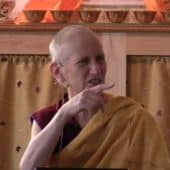
Chapter 3: Verses 287-293
Continued explanation of the 25 qualities attained through creating the causes and conditions for the collections of merit and wisdom.
View Post
Chapter 3: Verses 292-300
Completion of the explanation of the 25 special qualities of amassing the collections of merit and wisdom. The causes and effects of the six super-knowledges.
View Post
Chapter 4: Verses 301-311
Nagarjuna's advice for leaders is also practical advice for us in our workplaces, organizations, relationships, and our daily practice.
View Post
Chapter 4: Verses 311-322
Practical advice for those in leadership positions on how to use resources in a way that benefits everyone equally and inspires other leaders to act…
View Post
“Precious Garland” review: Quiz par...
Discussion of how the self exists and doesn't exist. How to use the analysis of one-or-many to meditate on the selflessness of the person.
View Post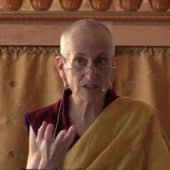
Chapter 4: Verses 322-328
Nagarjuna's practical advice to a king on how to appoint capable officials is relevant for leaders of organizations on how to manage with a Dharma…
View Post
Chapter 4: Verses 327-339
Nagarjuna's advice to leaders on appointing administrators and treating prisoners with compassion. How to incorporate the Dharma into corrections policies.
View Post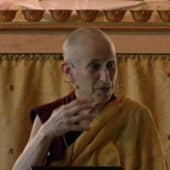
Chapter 4: Verses 339-348
Refuting inherently existent feelings of pleasure and objects of pleasure. Pleasure and happiness exist conventionally but not ultimately.
View Post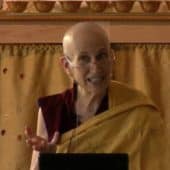
Chapter 4: Verses 349-355
Refutations of pleasure and objects of pleasure as being inherently existent. The dependent nature of sense objects, sense faculties and sense consciousnesses.
View Post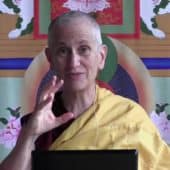
Chapter 4: Verses 356-363
Refuting inherent existence with refutations of inherently existent pain and pleasure.
View Post